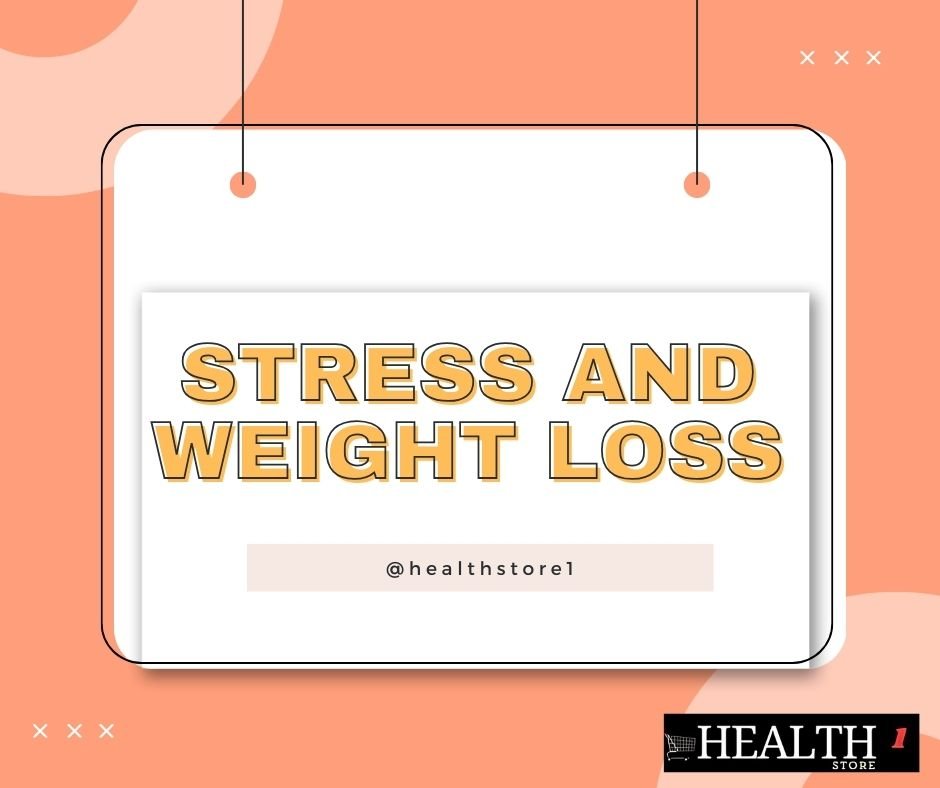Introduction to Stress and Weight Loss
In today’s fast-paced world, stress has become a part of daily life for many people. While it’s common knowledge that stress affects mental health, fewer people realize its powerful impact on physical health, particularly when it comes to weight. The connection between stress and weight loss is a complex one, with stress both contributing to weight gain and making it harder to lose weight. In this article, we’ll explore the hidden link between stress and weight loss, discuss the underlying mechanisms, and provide actionable strategies for managing stress to support your weight loss journey.
Table of Contents
The Link Between Stress and Weight Loss
Stress can affect weight in several ways, and its impact varies from person to person. While some people lose weight when they’re stressed due to a loss of appetite, others may gain weight due to emotional eating or metabolic changes. To understand the relationship between stress and weight loss, it’s essential to explore how stress affects the body on both a psychological and physiological level.

The Role of Cortisol in Stress and Weight Loss
One of the primary ways stress impacts weight is through the hormone cortisol. Often referred to as the “stress hormone,” cortisol is released by the adrenal glands in response to stressful situations. It plays a vital role in regulating metabolism, blood sugar levels, and energy balance.
When stress becomes chronic, cortisol levels remain elevated for prolonged periods, which can lead to several negative effects on the body, including weight gain and difficulty losing weight.
How Cortisol Affects Weight:
- Increased Appetite: Elevated cortisol levels stimulate hunger, often leading to overeating or cravings for high-calorie, sugary foods. This is why stress is commonly associated with emotional eating.
- Fat Storage: Cortisol encourages the storage of fat, particularly in the abdominal area. This type of fat, known as visceral fat, surrounds vital organs and increases the risk of heart disease and other health issues.
- Slowed Metabolism: Chronic stress can slow down your metabolism, making it harder to burn calories and lose weight.
- Muscle Breakdown: Cortisol can also lead to the breakdown of muscle tissue. Since muscle mass is crucial for maintaining a healthy metabolism, this can further hinder weight loss efforts.
| Effect of Cortisol | Impact on Weight |
|---|---|
| Increased appetite | Leads to overeating and weight gain |
| Fat storage | Accumulates fat in the abdominal region |
| Slowed metabolism | Reduces calorie burn, hindering weight loss |
| Muscle breakdown | Decreases muscle mass, affecting metabolism |
Stress-Induced Eating Habits
Another major link between stress and weight loss is the impact stress has on eating behavior. When people are stressed, they are more likely to engage in unhealthy eating patterns, including:
- Emotional Eating: Many people use food as a way to cope with stress. Emotional eating involves consuming food for comfort rather than hunger. Stress often triggers cravings for high-fat, high-sugar “comfort foods,” which can lead to weight gain.
- Mindless Eating: Stress can cause people to eat mindlessly, paying little attention to what or how much they are eating. This can result in overeating and making poor food choices.
- Irregular Eating Patterns: Stress can disrupt normal eating patterns, causing some people to skip meals, while others may snack constantly throughout the day. Both behaviors can negatively affect weight loss efforts.

Statistics on Stress and Eating Habits
- A study published in the American Journal of Clinical Nutrition found that people who experienced chronic stress were more likely to overeat and consume high-calorie foods, leading to weight gain.
- Research from the American Psychological Association (APA) showed that 39% of adults reported overeating or eating unhealthy foods as a result of stress.
How Stress Affects Sleep and Exercise
In addition to its direct impact on eating habits and metabolism, stress can also interfere with other key factors in weight loss, such as sleep and exercise.
1. Stress and Sleep Deprivation
Chronic stress is a major cause of sleep deprivation, which can further complicate weight loss efforts. Poor sleep quality is associated with increased hunger, cravings for unhealthy foods, and reduced energy levels, making it harder to stay active and stick to a healthy diet.
- Research has shown that people who sleep less than 7 hours per night are more likely to gain weight and have a higher body mass index (BMI).
2. Stress and Exercise Motivation
Stress can also affect your motivation to exercise. When you’re stressed, you may feel too fatigued or overwhelmed to engage in physical activity. Additionally, elevated cortisol levels can reduce your exercise performance and recovery time, making it harder to achieve your fitness goals.
Managing Stress to Support Weight Loss
Understanding the connection between stress and weight loss is just the first step. To successfully lose weight and keep it off, it’s essential to develop effective strategies for managing stress. Below are some evidence-based techniques for reducing stress and supporting your weight loss journey.
1. Mindfulness Meditation
Mindfulness meditation involves focusing on the present moment and observing your thoughts without judgment. This practice has been shown to reduce stress, improve emotional regulation, and even promote healthier eating habits.
- A study published in Obesity Reviews found that mindfulness interventions were associated with significant reductions in emotional eating and stress-related weight gain.
2. Physical Activity
Exercise is one of the most effective ways to reduce stress. Physical activity increases the production of endorphins, also known as “feel-good” hormones, which help improve mood and reduce stress levels.
- Regular exercise can also improve sleep quality, boost metabolism, and help burn calories, all of which support weight loss.
| Exercise Type | Stress-Reducing Benefits |
|---|---|
| Aerobic exercise | Increases endorphin levels, reduces stress |
| Strength training | Improves mood and supports metabolism |
3. Adequate Sleep
Getting enough quality sleep is crucial for both stress management and weight loss. Prioritize sleep by maintaining a consistent sleep schedule, creating a relaxing bedtime routine, and minimizing screen time before bed.
- Aim for 7–9 hours of sleep per night to support healthy weight management and stress reduction.
4. Balanced Diet
While stress often leads to cravings for unhealthy foods, maintaining a balanced diet is essential for managing both stress and weight. Include plenty of fruits, vegetables, whole grains, lean proteins, and healthy fats in your meals.
- Incorporate foods rich in omega-3 fatty acids, such as salmon and walnuts, as they have been shown to reduce inflammation and lower cortisol levels.

5. Time Management and Relaxation Techniques
Managing your time effectively and incorporating relaxation techniques into your daily routine can significantly reduce stress levels. Practices like deep breathing exercises, yoga, and progressive muscle relaxation can help calm the mind and body, reducing the negative effects of stress on weight.
The Importance of Addressing the relation between Stress and Weight Loss
While diet and exercise are crucial for weight loss, addressing the underlying issue of stress is equally important. The relationship between stress and weight loss highlights the need for a holistic approach to weight management that includes stress reduction techniques. By managing stress, you can prevent emotional eating, improve sleep quality, and support a healthy metabolism.
Why Stress Must Be Managed for Sustainable Weight Loss
- Prevents Emotional Eating: Reducing stress helps curb cravings for unhealthy, high-calorie foods.
- Improves Metabolism: Managing stress lowers cortisol levels, preventing fat storage and muscle breakdown.
- Boosts Physical Activity: Stress management increases motivation and energy levels, making it easier to stay active.
- Enhances Sleep: Stress reduction promotes better sleep, which is essential for weight loss and overall health.
Conclusion: Stress and Weight Loss
The connection between stress and weight loss is clear: chronic stress can sabotage your weight loss efforts by increasing hunger, slowing metabolism, and encouraging emotional eating. To achieve sustainable weight loss, it’s essential to manage stress through healthy coping strategies like mindfulness meditation, regular exercise, and getting adequate sleep.
By understanding the
hidden link between stress and weight loss and implementing these stress-reducing techniques, you can support your physical and mental well-being while reaching your weight loss goals.




